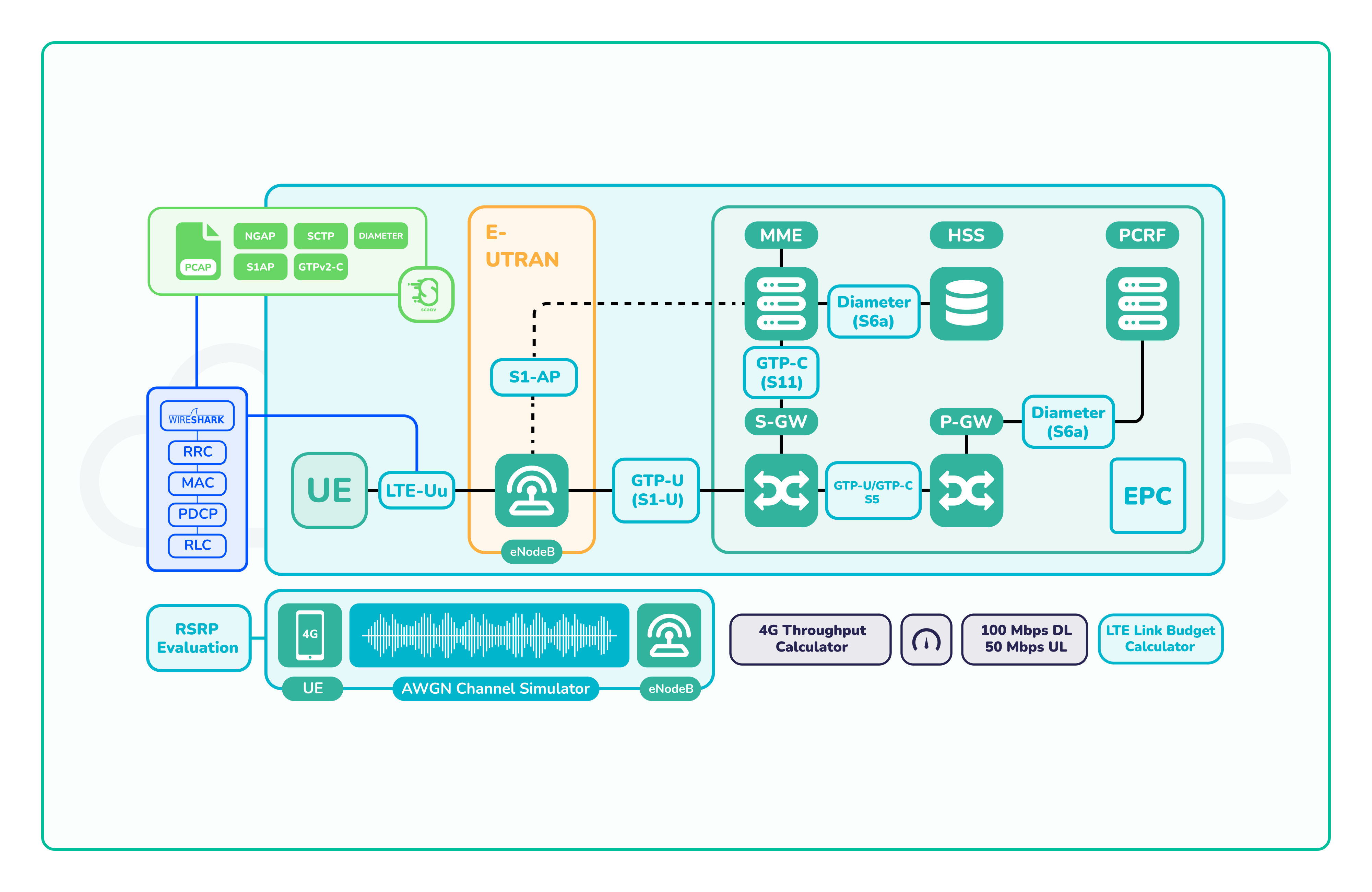
Essentials of LTE Radio for Beginners
4G Lab Radio introduces you to the fundamental components and procedures of modern cellular communication. You'll explore the Radio infrastructure, understand frequency bands, modulation techniques, and carrier Aggregation. This hands-on lab experience will equip you with the skills to test network performance, like LTE Link Budget, signal path analysis, and RSRP evaluation under noisy channels, providing a comprehensive understanding of 4G technology.
About The Lab
Prerequisites




Audiences
Lab Architecture
The beginner's 4G Radio Lab provides a rich learning environment tailored for exploring and experimenting with various aspects of 4G radio technologies. It includes simulations of RF environments, which allow users to evaluate signal strength and performance under different conditions. Additionally, the lab features tools for analyzing network protocols, offering insights into the inner workings of Uu Radio interfaces. These resources collectively empower learners to gain practical insights into 4G networks, from understanding theoretical speed calculations to estimating network coverage and performance metrics.
Why this Lab ?
This hands-on LTE Lab introduces beginners to LTE technology, covering advancements over 3G and 2G like SC-FDMA and OFDMA. Participants explore LTE releases, the transition to 5G, and integration with GSM/UMTS systems. Key topics include FDD vs. TDD, modulation techniques, MIMO, Carrier Aggregation, and practical simulations of UE procedures. Sessions on radio propagation, antenna configurations, and signal analysis with tools like the LTE link budget calculator and CloudRF provide practical insights for telecom professionals.
Lab Objectives
- Gain a solid understanding of LTE fundamentals, its evolution from 3G/2G, and key technologies like SC-FDMA and OFDMA.
- Develop expertise in LTE architecture, including UE, eNB, and interworking with GSM/UMTS.
- Master LTE transmission techniques, including FDD vs. TDD, MIMO, and Carrier Aggregation.
- Build knowledge of the LTE protocol stack, including RRC, PDCP, RLC, and MAC layers.
- Enhance skills in LTE radio planning, link budget analysis, and signal path evaluation using CloudRF.



